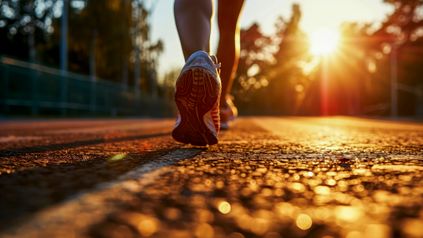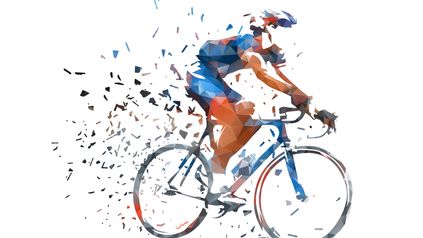A shot in the arm – or simply the dark for the future of sport?
The 33rd Olympic Games starts in Paris this week. The pinnacle of sport and peerless in the quest for excellence. Or so we thought… Enter the Enhanced Games.
The Enhanced Games is a pending sports event where athletes will not be subject to drug testing. It is the brainchild of Aron D'Souza, an Australian businessperson, and it is proposed that the inaugural event takes place in 2025, the website reads;
"Backed by the world’s top venture capitalists, the Enhanced Games are the Olympics of the future. When 44% of athletes already use performance enhancements, it is time to safely celebrate science. It’s time to pay athletes instead of bureaucrats, and demonstrate what the human body is truly capable of. Sport is safer without drug testing."
The Concept
The Enhanced Games is intended to be the first event of its kind to support performance-enhancing drugs and not follow the rules of the World Anti-Doping Agency. Albeit performance-enhancing drugs will not be mandatory for participants and only FDA approved substances will be allowed, D'Souza says this is only for insurance reasons.
The idea sounds outlandish, yet the possibility of such an event has been discussed hypothetically for many years. At the first Enhanced Games, the events planned include athletics, swimming, weightlifting, gymnastics and combat sports. Asked if the Enhanced Games would allow technologically-enhanced equipment as well as performance-enhancing drugs, D’Souza said he looked forward to “the greatest technological innovations that are available . . . to make more world records possible in each discipline, not just swimming super suits.” It has subsequently been confirmed that prosthetic limbs and shoe technology will also be allowed.
Backing for the project
D’Souza claimed, a matter of days ago, to have received thousands of inquiries from athletes expressing interest, although their website suggest that official registration will open later this year.
Former Olympians connected to the Enhanced games include the swimmers Brett Fraser and Roland Schoeman, the latter a gold medallist banned for a year after testing positive for an illegal drug in 2020. Other significant individuals include Christina Smith (bobsleigh) and the controversial Harvard geneticist, George Church.
In January 2024, the Enhanced Games announced that it had secured a "multi-million-dollar" investment round from venture capitalists, including Peter Thiel and Balaji Srinivasan. This development contrasts sharply with the recent news that Toyota is pulling out of its $835 million sponsorship of the International Olympic Committee ("IOC") after Paris 2024.
In February 2024, Australian swimmer James Magnussen, who won three Olympic medals before his retirement in 2019, turned heads by announcing his express intention to take a shot at the $1 million prize for breaking a world record offered by the Enhanced Games. Speaking to the Hello Sport Podcast, Magnussen said: “I’ll juice to the gills and I’ll break it in six months. You can’t teach talent to a swimmer and then juice them up. You’ve got to get a pre-existing fast swimmer. You’re not going to get swimmers good enough…. I don’t know heaps about it [doping] to be honest. I think you just go pure testosterone. Pump your levels up to a superhuman level and then turn into a freak show.”
Perhaps unsurprisingly, the UK Anti-Doping Agency last year said that it was “extremely concerned” by the concept, adding: “The premise of sports competitions that allow performance-enhancing drugs is unsafe, dangerous to athletes’ health and wellbeing, and flies in the face of fair play.”
Media Controversy
The Enhanced Games has attracted considerable controversy by tweeting athletes that have recently failed doping tests and inviting them to join the Enhanced Games. Examples include men's 10km record holder Rhonex Kipruto (banned for 6 years in June 2024), u20 100m record holder Issam Asinga (banned for 4 years in May 2024) and boxing's WBC lightweight world champion Ryan Garcia (banned for one year in May 2024).
They also referenced Pep Guardiola in a tweet congratulating Manchester City, after they secured their fourth consecutive Premier League title this year, by calling him their "favourite enhanced football coach" referring to the Spaniard's positive test for the banned substance nandrolone back in 2001 during his playing career.
What is most striking about this story is the sheer number of banned or previously banned athletes the Enhanced Games have to choose from and the volume of doping scandals they can refer to. Collectively these threaten to overshadowing the build up to the Olympics.
The sports world was rocked as recently as April when WADA confirmed that 23 Chinese swimmers had tested positive for the performance-enhancing drug trimetazidine at the Long Course Invitational in Shijiazhuang City in 2021, yet were allowed to compete at the Tokyo Olympics later that year. WADA then scrambled to defend its actions, accepting the verdict of contamination with limited proof and has kept the tests private, to little effect in the court of public opinion.
Even British athletes have failed to escape scrutiny in the lead up to the Olympics. Taekwondo star Jade Jones just last week escaped a ban for refusing a test, thanks to her successful argument of a "loss of cognitive capacity" due to dehydration training. Jones provided a clean sample later that day, but was fortunate, considering her refusal was against the explicit advice of GB Taekwondo's performance director and five warnings which she received from the anti-doping officer before she elected to leave the scene.
Paying Athletes
One final element of the Enhanced Games that is worth considering is their commitment to "pay athletes, not bureaucrats." This claim is backed up on the website which states "All athletes competing in the Enhanced Games will be paid. We are pleased to confirm that top tier athletes will receive a six-figure base salary." This is in stark contrast to the athletes rights group survey from 2020, published on the IOC website, that found that 58% of athletes gearing up for the Olympic Games Tokyo 2020 did not perceive themselves as “financially secure”.
Meanwhile, change appears to be on the horizon. In a landmark decision on 10 April 2024, World Athletics announced it will become the first international federation to award prize money at an Olympic Games, promising $50,000 for every gold medallist in Paris, with payments to silver and bronze medallists beginning at the Los Angeles Games in 2028.
Between 2017 and 2021, the IOC made an impressive $7.6bn in revenues from the Olympic Games. But in a terse statement in response to World Athletics’ decision, the IOC said it pumped nearly all the money it makes back into sports.
Comment
The world is exercising more. Run clubs are becoming more popular than nightclubs and elite athletes are receiving eye-wateringly huge contracts from both teams and sponsors. Whilst the Olympics will always represent the pinnacle of sporting endeavour, its historically charming approach to amateurism may not be able to survive in the modern world.
The Enhanced Games represents a serious challenge to the status quo, and it will be intriguing to see if it or similar offerings come to fruition and are able to maintain this level of public interest despite obvious concerns about safety, fair play and welfare of the athletes.
To illustrate its potential, Hollywood star and Wrexham AFC co-owner Rob McElhenney tweeted the Enhance Games saying, “Please please please let me make a docuseries [sic] about this I beg you." Recent reports suggest that just such a deal has been struck.
Whether the Olympic movement needs to shorten its motto "Faster, Higher, Stronger – Together" to simply "Higher Together" remains to be seen.


/Passle/57b2e0b63d947408fcc6e4e6/SearchServiceImages/2025-10-21-10-59-00-260-68f76774e76526bbfaa5afe3.jpg)

